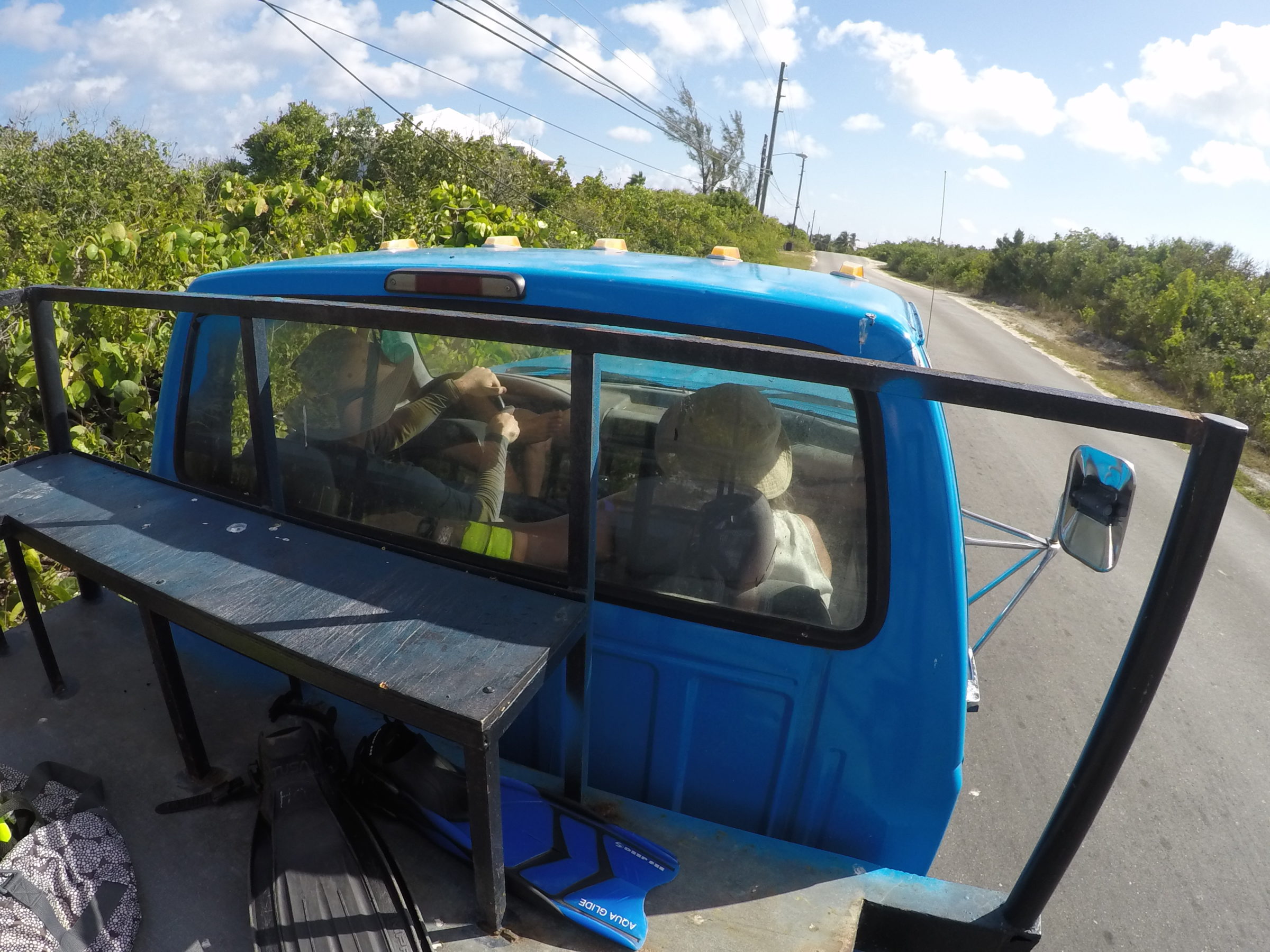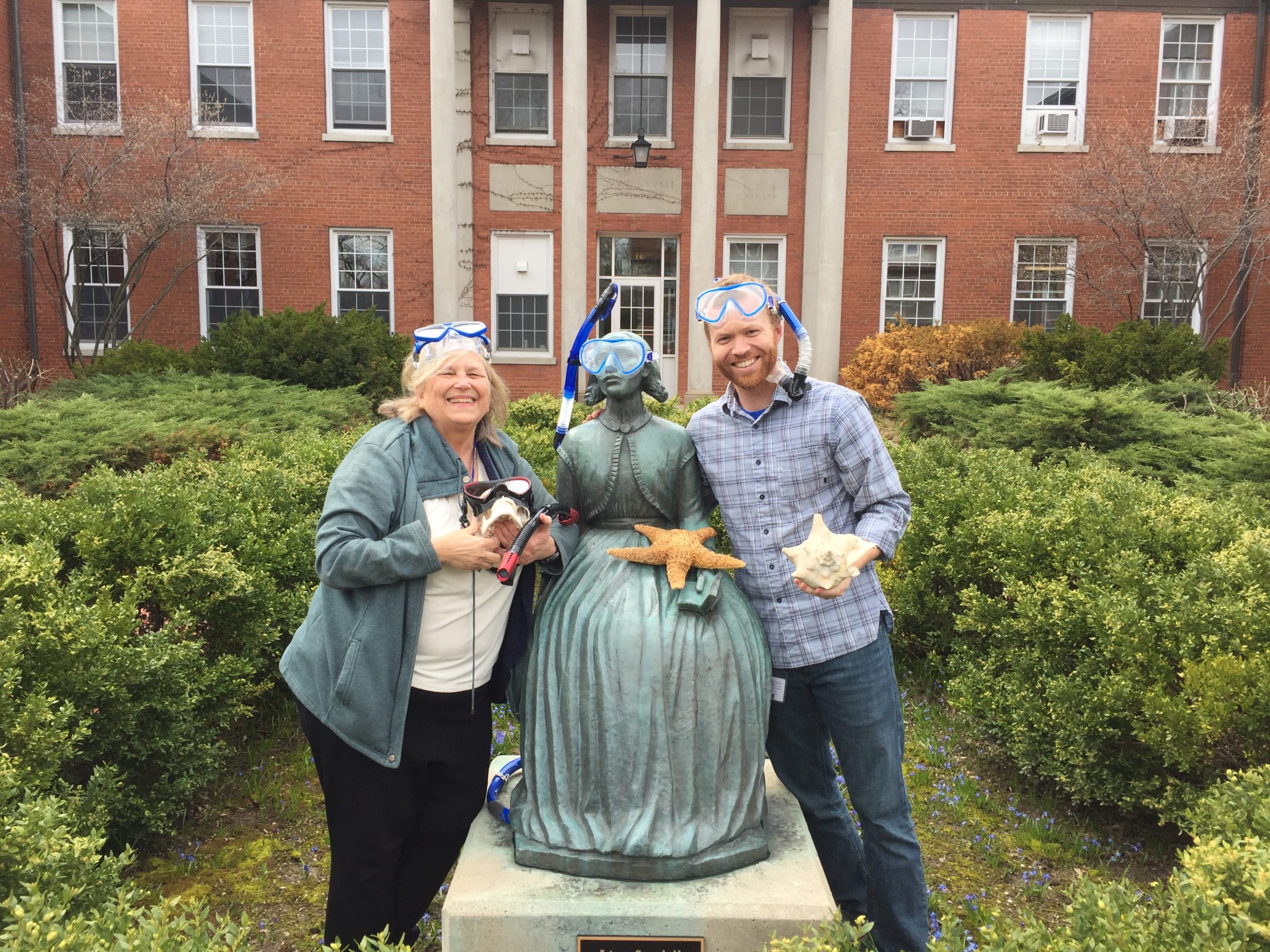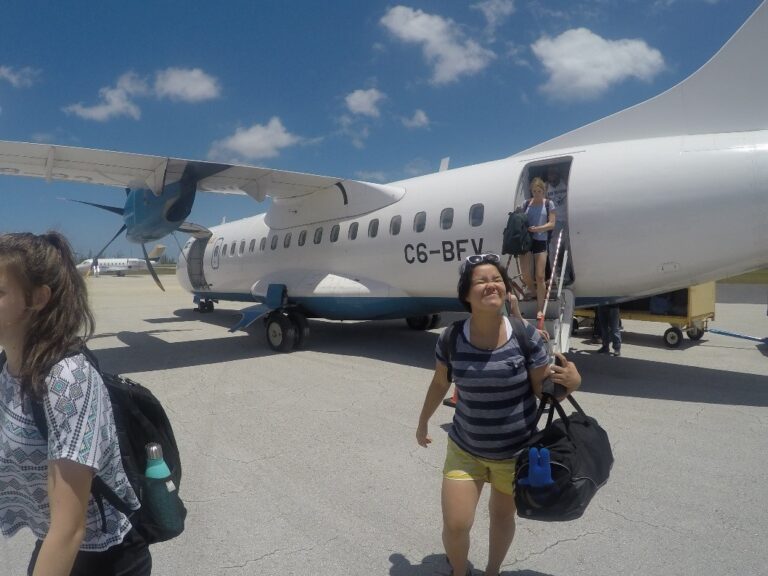This is a student blog post submitted by Leslie Nelson C’19. Leslie is a Biology major.
“The first time is the worst.” The mini heart attacks subsided as we remembered that Bahamians do indeed drive on the opposite side of the road. Meanwhile, we were still trying to comprehend why half of the cars have steering wheels on the left side and the other half have them switched to the right. This is one of the first examples of merging cultures we experienced on arrival in Nassau in The Bahamas.
Another striking cultural difference noticed early on was between the leisurely island style and the bustling tourism industry. Tourism is the largest industry found on the Bahamian Islands. Once again, a merging of these two worlds became apparent in Nassau during dinner time at “Da Fish Fry,” the local seafood strip. The restaurant owners persistently pursued us to get us to eat at their establishments. One owner even picked up a Chicago Cubs t-shirt worn by one of our group members, using this as a segue to talk us into his establishment. This kind of personalized attention is not as common in North American cities. We snacked on local delicacies like conch fritters and some members of our group even enjoyed a full conch meal!

However, there were also tastes of home. Dunkin Donuts. This time, donuts at the Lynden Pindling International Airport were the method by which cultures were fused. Dr. Rholl was the only brave soul who was willing to give a guava donut a try . . . he loved it. And these donuts appeared once again when multiple people traveling on our small flight from Nassau to San Salvador brought a box full of donuts to the island with them, a commodity which can’t be found on the out islands.
Beyond experiencing the unique culture of the Bahamas, we also found time to work on our snorkeling and identification skills. Two snorkeling sessions have already been squeezed in between flights and meals and catching up on sleep. To begin we checked out Junkanoo Beach in the heart of Nassau which is right next to the shipping lanes and a public beach. For our second session, we waited until San Salvador and walked across the street from our lodging at the Gerace Research Centre to the boat launch at Graham’s Harbor.

In just 24 hours, our eyes have been opened to a new world. In 1492, Christopher Columbus landed on the tiny Bahamian island of San Salvador. 525 years later, we are excited to see what else “Columbus’ Isle” has in store for us, both culturally and ecologically.


